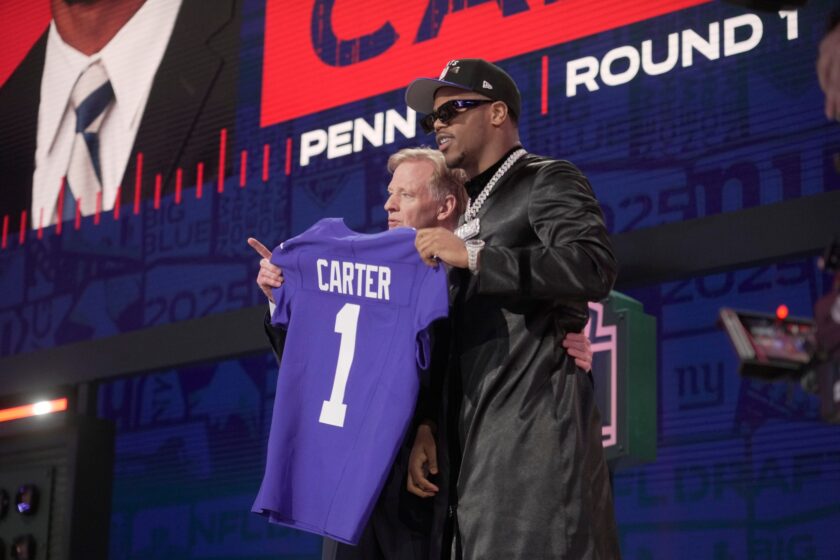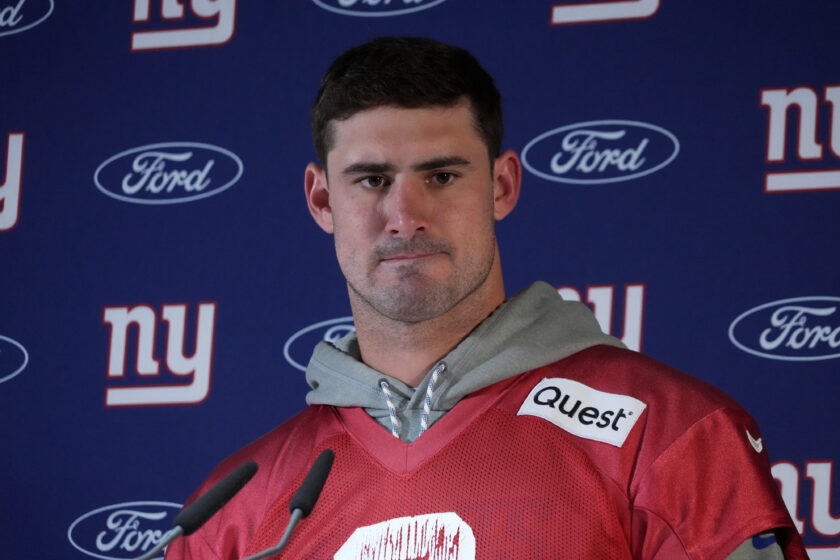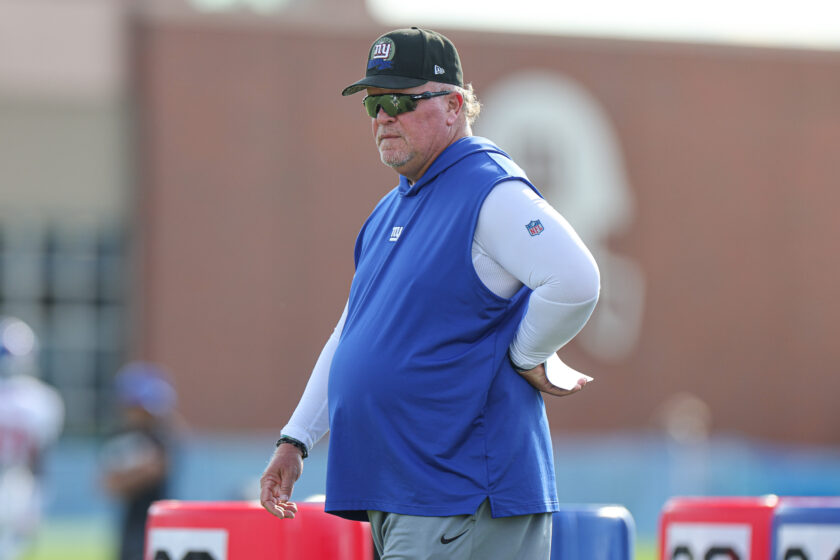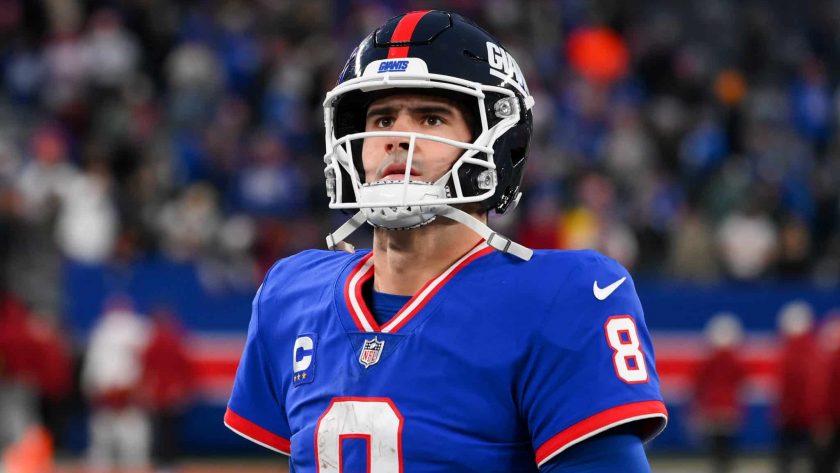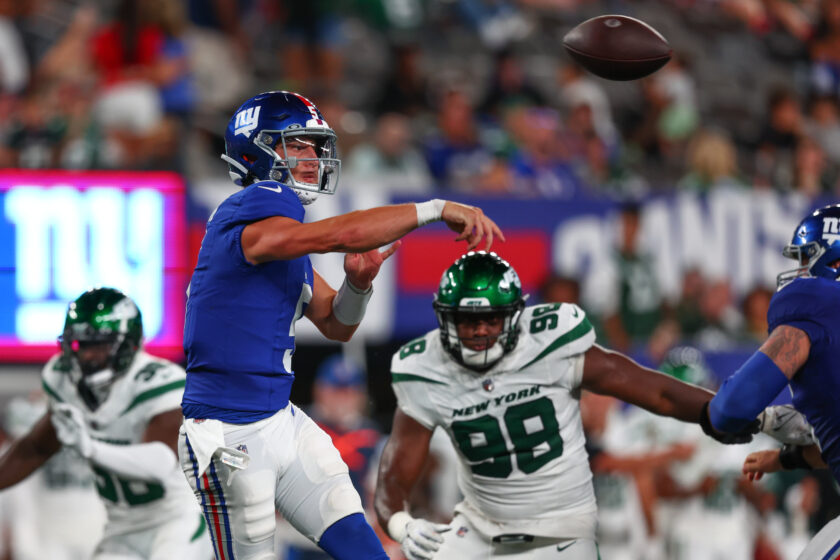No, New York Giants’ 2018 struggles do not vindicate Ben McAdoo
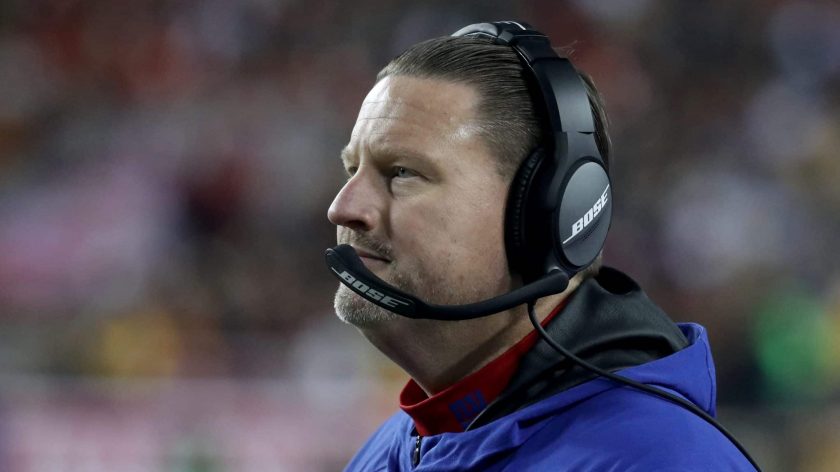
Some New York Giants fans are yearning for the days of Ben McAdoo after their 1-5 start, but the modern struggles don’t fully absolve him.
[sc name=”Geoff Magliocchetti Banner” ]We’re about to enter the seventh week of the 2018 NFL circuit. We’ve seen plenty of unexpected headlines.
For example, Ryan Fitzpatrick briefly created a quarterback controversy in Tampa Bay for three brilliant weeks. Le’veon Bell’s extended holdout gave rise to James Conner in Pittsburgh. Jon Gruden’s new-look Oakland Raiders failed to outscore many of the soccer teams that partake on the Wembley Stadium pitch. Even the Cleveland Browns, leaders in losing, have managed not only a pair of wins but a miraculous tie as well.
But perhaps the most bizarre headline, as well as the most unexpected, has been the potential redemption of departed New York Giants head coach Ben McAdoo.
McAdoo apologists have risen in the wake of the modern Giants’ 1-5 start, duplicating the mark they had through six games last season, McAdoo’s second and final year at the Giants’ helm. Six games later, McAdoo was dismissed alongside general manager Jerry Reese, less than a year after he oversaw the Giants’ first playoff appearance in five seasons. Began in his place did the Pat Shurmur era, but, thus far, the changing of the guard has only brought upon more despair.
There are plenty of similarities between the latest two seasons in Giants history, both of which have featured plenty of losses of both the heartbreaking and blowout varieties. Further talk has centered on an Odell Beckham Jr. sideline display, and the offensive line is struggling to block.
A notable difference, however, is that the football-loving public seems more willing than ever to blame the Giants’ struggles on Eli Manning.
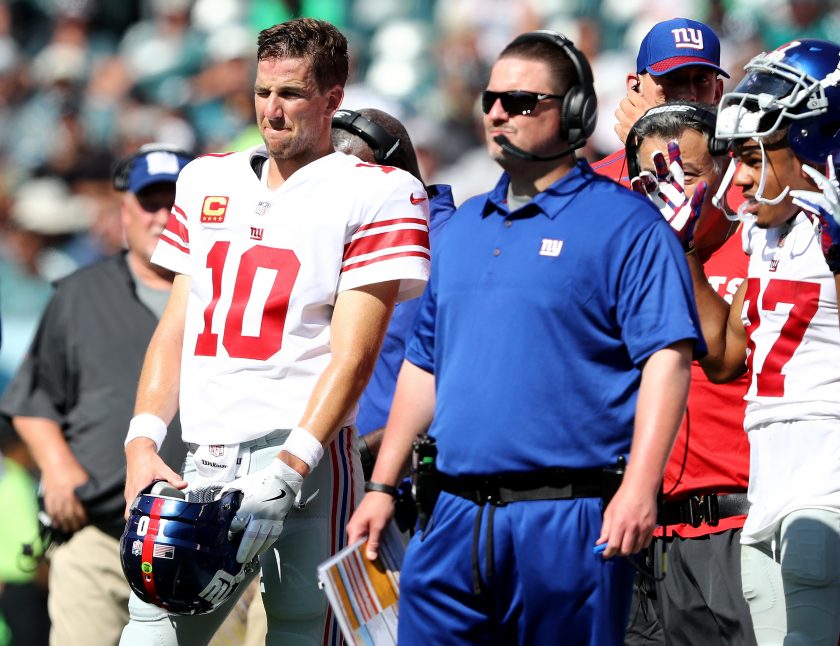
Last season, pointing the finger at McAdoo, Reese, and the offensive line served as a fun stress-reliever for Giants fans horrified at their team’s transformation in football’s version of the Knicks. This time, however, continuing offensive ineptitude, combined with the Giants passing (pun very much intended) on several quarterback prospects in last spring’s draft, one of which wound up being the Jets’ new franchise man, has apparently commenced open season on Manning.
For perhaps the first time since Manning took over the Giants’ starting quarterback duties, creating a tenure that has spanned the entirety of Taylor Swift’s discography and the Marvel Cinematic Universe, the idea of seeing someone new under center for the Giants is a realistic, even welcome, idea.
It’s a contrast to last season, where Manning’s infamous benching was the most unthinkable thing the tri-state area could face. McAdoo was part of the triumvirate that signed off on the decision to end Manning’s starting streak, subbing him in with Jets castaway Geno Smith, who recently came to McAdoo’s defense on Twitter.
Y’all owe my boy Mac an apology!!
— Geno (@GenoSmith3) October 12, 2018
Smith’s tweet has generated over 2,000 replies and counting. While some have snarkily countered that Smith owes the Jets an apology, others agree with his sentiment, evening labeling McAdoo a martyr. The current Los Angeles Chargers backup stood by his words, even when confronted on the matter by renowned Giants defender and current analyst Carl Banks.
There’s no denying Manning is in the final stages of his illustrious NFL journey. The Giants must enter 2019 knowing who the heir to his throne is, whether he’s starting Week 1 or learning under him.
But even in Manning’s decline, McAdoo is not off the hook.
Even if, in hindsight, McAdoo was “right” about benching Manning, a decision that required the signatures of three parties (Reese and principal owner John Mara were the others), the historic demotion itself was badly mishandled. Under McAdoo, a supposed offensive guru that was expected to lead the Giants into the future, the Giants had the first legitimate Manning successor on their roster.
[sc name=”Giants Center” ]Quarterbacks had obviously come and gone in the Manning era, but Davis Webb was different. There were plenty of pressing needs in the Giants organization, as the team would soon discover, but they chose to use a third-round choice on Davis Webb, their high selection of a quarterback since the fateful spring afternoon in 2004.
With the Giants season completely lost entering December, McAdoo could’ve taken advantage of free research and development for 2018, but instead, perhaps in an ill-fated attempt to save his job, chose the veteran Smith to end Manning’s epic streak. The severe backlash that followed the announcement could’ve been avoided had McAdoo chosen to start the rookie over the veteran who clearly had no long-term future in New York, in either blue or green.
But McAdoo, as well as the rest of the Giants’ decision-makers, mishandled Webb from the start, not even letting him sniff the second-team unit until late November.
Smith’s signing with the Giants made sense when it happened in March 2017. If the unthinkable happened to Manning, a veteran option could step in and at least tread water until Manning was ready to hypothetically reinserted. But starting him when the Giants had a potential future starter waiting in the wings and absolutely nothing to lose was the last straw in McAdoo’s ineffective tenure.
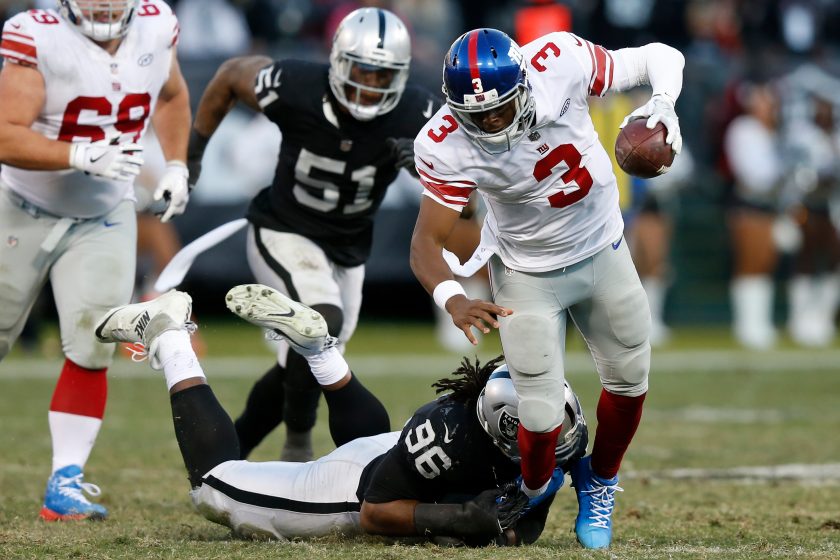
McAdoo’s problems went far beyond a simple decision at quarterback in an irrelevant visit to Oakland, one that featured a pair of Smith turnovers and resulted in yet another loss. Offensive struggles that carried over from the end of the Tom Coughlin era reached embarrassing new heights under McAdoo, the promoted offensive coordinator.
The Giants failed to reach 30 points in any of his 29 games at the helm and continued to languish near the bottom of the league’s rushing rankings. There were positives to glean from his rookie campaign in 2016, but hidden in the fleeting joy of a playoff were struggles below the surface. Sure, the Giants earned 11 victories, but all but two were decided by single digits, the team often bailed out by strong defensive performances.
Armed with offensive firepower, including the potential best receiver in football in the form of Odell Beckham Jr., that type of offensive production, or lack thereof, was unacceptable, especially in a modern NFL that continues to require dominating offensive performances to succeed. McAdoo warranted Coach of the Year consideration for the 11-5 campaign, which included a pair of wins over the NFC’s top seed in Dallas, but the initial success turned out to be a mirage.
McAdoo’s problems likewise extended to the defensive side of the ball. The suspensions of Dominique Rodgers-Cromartie and Janoris Jenkins seemed lost in the list of disasters that befell the Giants in 2017, but they were still shameful instances that caused the defenders to lose faith in McAdoo. Unknown parties would anonymously rip McAdoo as the season’s situation became more dire, signifying his loss of the team. His December firing, hours after Smith ran the 24-17 loss to the Raiders, almost felt like a mercy offer.
It’s admirable to see Smith defend the embattled coach that gave him a second chance at being an NFL starting quarterback, even if it reeks of an attempt to return to the New York spotlight. But to straight up demand an apology for a decision that never really changed the Giants’ fortunes for better or worse is far-fetched and misguided.
Manning is indeed part of the Giants’ laundry list of problems, but even if McAdoo was right to at least attempt to turn the page, it’s not like the Giants were bidding farewell to a coach that was getting them closer to a Super Bowl. By the time he and Reese were dismissed, their respective tenures were too far gone, too deep in murky Meadowlands swamp water
McAdoo will probably get a second chance elsewhere, if only because teams love to add guys with NFL experience on their coach staffs. But it was clear his time in New York was up. There’s no apology necessary for moving on when the time is right. There’s still a good portion of Giants fans who believe that when it comes to McAdoo. It’s another story and case entirely, but let’s hope they feel the same way, painful as it may be when the same time creeps up on Manning.
[sc name=”Twitter Follow Link” text=”Geoff Magliocchetti” username=”@GeoffMags5490″ ] [sc name=”Giants Link Next” link=”https://elitesportsny.com/2018/10/16/new-york-giants-damon-harrison-makes-perfect-sense-for-the-chiefs/” text=”Damon Harrison Is Perfect For This One AFC Team” ] [sc name=”Giants Footer” ]
